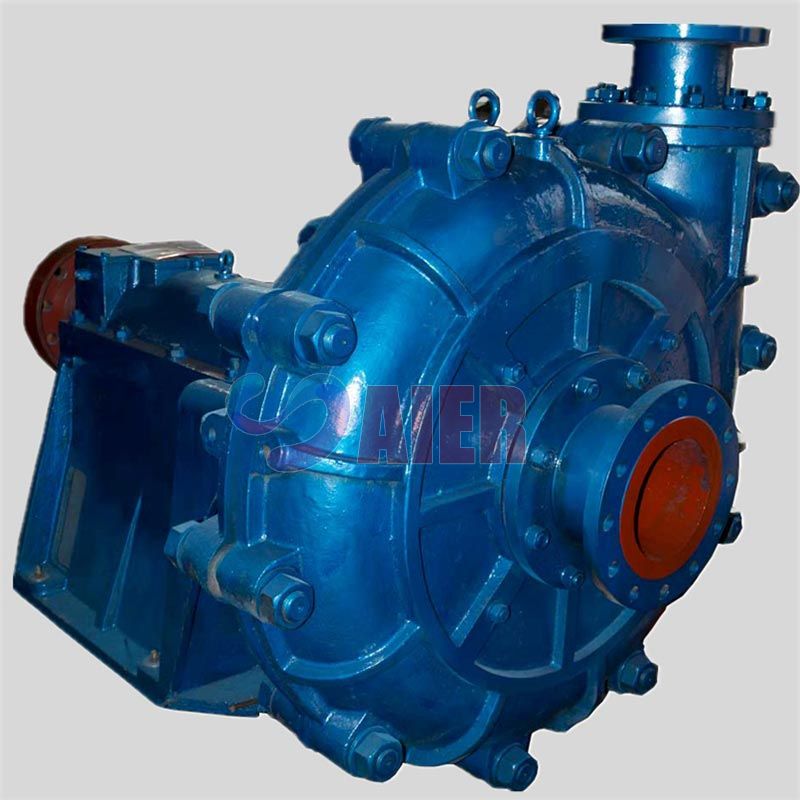nóv . 27, 2024 04:00 Back to list
Centrifugal Pumps for Wastewater by Leading Manufacturers Worldwide
The Importance of Centrifugal Pumps in Wastewater Management
Wastewater management is a critical aspect of modern infrastructure, ensuring that effluents are effectively managed to minimize environmental impact and promote public health. Among the various components involved in wastewater treatment systems, centrifugal pumps play an essential role. Manufacturers specializing in centrifugal pumps for wastewater applications have evolved significantly to meet the increasing demands of this sector.
Understanding Centrifugal Pumps
Centrifugal pumps operate on the principle of converting rotational energy, typically from a motor, into the kinetic energy of the fluid. When the impeller, which is the rotating part of the pump, spins, it imparts velocity to the fluid. This increased velocity is then converted into pressure as the fluid exits through the pump's volute or diffuser. The design allows for efficient movement of liquids, making centrifugal pumps ideal for transporting wastewater, which may contain solid particles and various contaminants.
Applications in Wastewater Treatment
Centrifugal pumps are commonly used in various stages of wastewater treatment. They are particularly effective for transferring sewage, sludge, and other industrial effluents. Key applications include
1. Raw Sewage Transfer Centrifugal pumps are utilized to transport raw sewage from its source to treatment facilities. Their robust design allows them to handle solid-laden flows without clogging.
2. Sludge Handling After treatment processes, thickened sludge needs to be transported for further processing, such as dewatering or incineration. Specialized centrifugal pumps designed for high-viscosity fluids are crucial in this operation.
3. Chemical Dosing In wastewater treatment, chemical addition (such as coagulants and disinfectants) is essential. Centrifugal pumps are used for precise dosing, ensuring the right amount of chemicals is injected into the treatment process.
4. Effluent Transfer Once wastewater has been treated, it must be pumped to appropriate disposal sites or back into water bodies. Centrifugal pumps ensure the efficient transfer of effluent, contributing to sustainable practices.
Advantages of Centrifugal Pumps in Wastewater Applications
One of the primary advantages of centrifugal pumps is their efficiency. They can handle large volumes of wastewater at relatively low operational costs. Additionally, the simplicity of their design allows easy maintenance, which is crucial for wastewater treatment facilities that operate continuously.
centrifugal pump wastewater manufacturer

Centrifugal pumps are also versatile. Manufacturers produce a range of models with various impeller designs and materials to cater to different types of wastewater. For instance, pumps with vortex impellers can manage liquids with higher solid content, while those constructed from corrosion-resistant materials ensure longevity when dealing with aggressive chemicals.
Moreover, advancements in technology have enabled manufacturers to incorporate smart features into centrifugal pumps. These include variable frequency drives (VFDs), which allow for the adjustment of pump speed based on the flow requirements. This not only enhances energy efficiency but also reduces wear and tear on the pumping equipment.
Selecting the Right Manufacturer
With numerous manufacturers offering centrifugal pumps for wastewater applications, selecting the right one can be daunting. Here are a few essential factors to consider
1. Experience and Reputation Look for manufacturers with a proven track record in designing and producing pumps specifically for wastewater. Established companies often have the expertise to provide guidance and support.
2. Product Range A reliable manufacturer should offer a diverse range of pumps tailored for various applications within wastewater treatment.
3. Quality and Compliance Ensure that the pumps meet industry standards and certification requirements. High-quality materials and robust testing procedures are indicators of a reputable manufacturer.
4. Technical Support Post-sale support is crucial. An effective manufacturer should provide comprehensive technical assistance, including installation guidance and maintenance services.
5. Innovation Innovative manufacturers often lead the industry in terms of efficiency and sustainability. Look for those who are committed to research and development.
Conclusion
Centrifugal pumps are vital components in the effective management of wastewater, ensuring that effluents are treated and transferred efficiently. As urban populations continue to rise, the demand for reliable wastewater treatment solutions grows. By choosing the right centrifugal pump manufacturer, facilities can optimize their operations, enhance sustainability, and protect both public health and the environment.
-
Top Submersible Pump Companies High Quality Manufacturers & Suppliers in China
NewsJul.08,2025
-
High Quality Seal for 5 Inch Dredge Pump Reliable China Manufacturer & Supplier
NewsJul.08,2025
-
High-Efficiency Slurry Sand Pump from Leading China Manufacturer – Durable & Reliable Solutions
NewsJul.07,2025
-
High-Quality Slurry Pump Made in China Durable Steel Mill Slurry Pump & Parts
NewsJul.07,2025
-
High Quality Excavator Dredge Pump Manufacturer & Suppliers from China – Reliable, Durable, Efficient Solutions
NewsJul.07,2025
-
Wholesale Slurry Pump Closed Impeller Supplier High Efficiency China Slurry Pump Closed Impeller
NewsJul.06,2025
